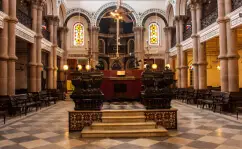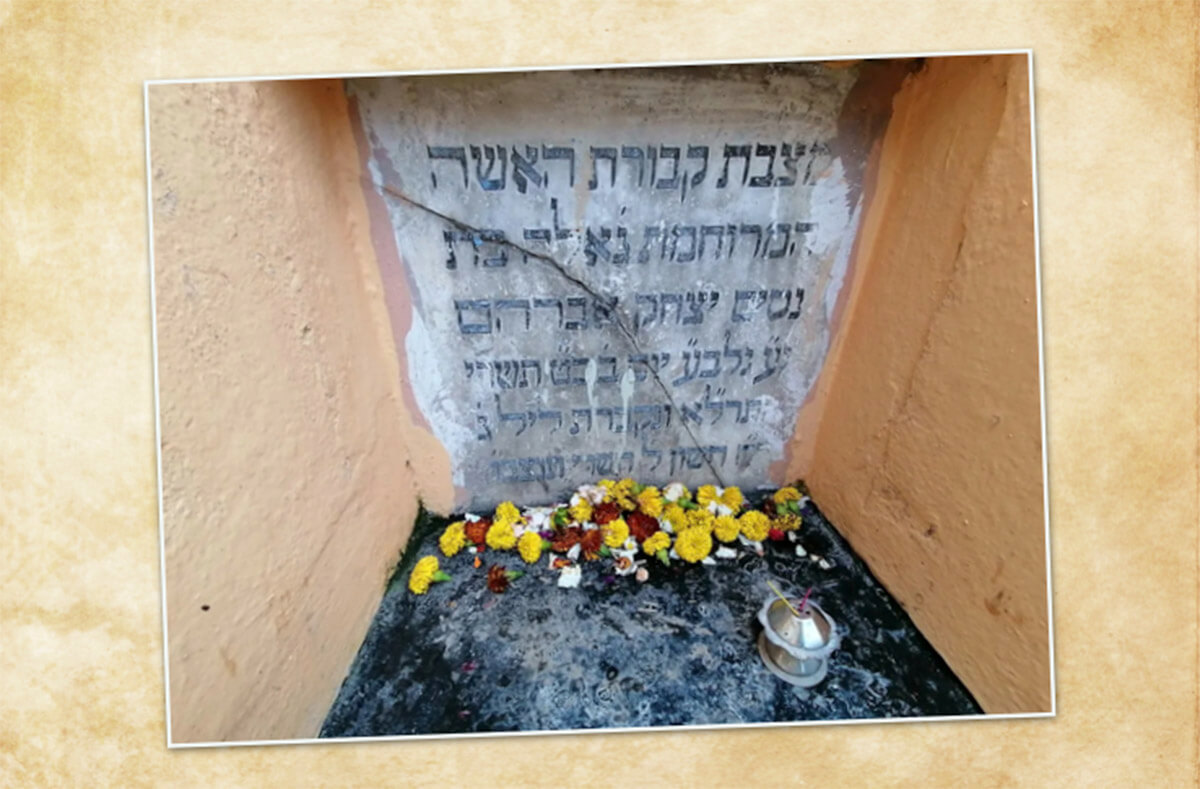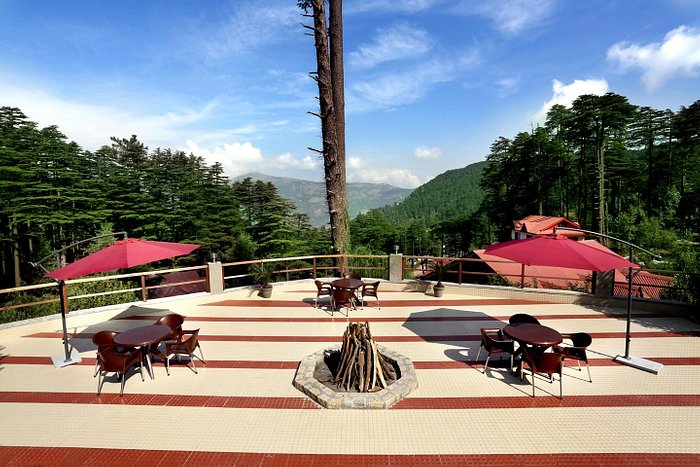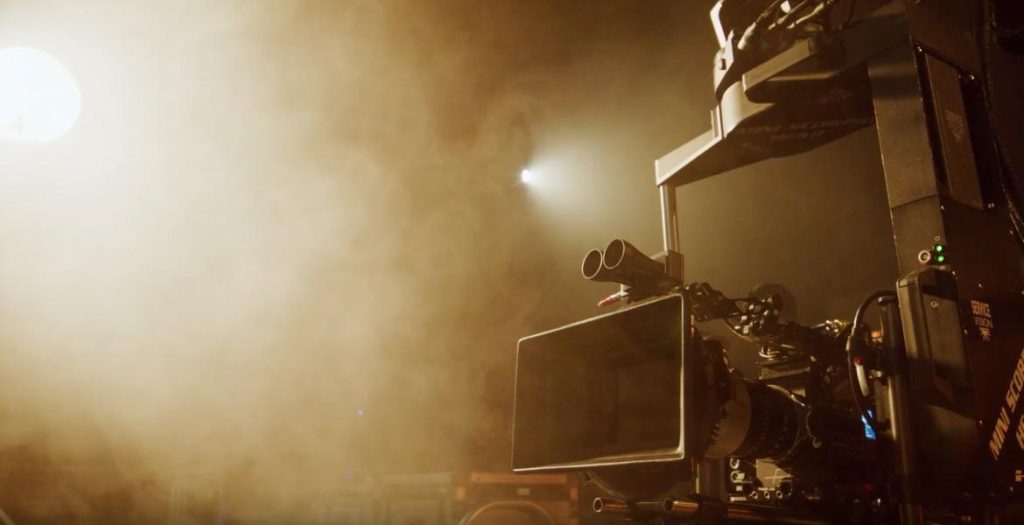Jewish Pilgrimage India offers a unique spiritual journey. It combines rich history and diverse culture.
India has a lesser-known but significant Jewish heritage. From ancient synagogues to vibrant communities, the country holds many treasures for Jewish pilgrims. This journey not only connects people to their faith but also to a piece of Jewish history that spans centuries.
India’s Jewish sites provide a profound experience, blending religious significance with cultural exploration. Whether you’re seeking spiritual growth or historical insight, a Jewish pilgrimage in India promises both. The synagogues, cemeteries, and communities tell stories of perseverance and faith. Discover how Jewish heritage intertwines with Indian culture, offering a memorable pilgrimage that enriches both heart and mind.

Credit: www.tourmyindia.com
Introduction To Jewish Pilgrimage In India
Jewish pilgrimage in India offers a fascinating journey through history and spirituality. This unique travel experience brings together the ancient Jewish heritage and the vibrant culture of India. Pilgrims can explore historic sites, synagogues, and communities that reflect the rich tapestry of Jewish life in India.
Historical Context
The history of Jews in India dates back over two thousand years. Jewish communities settled in India during ancient times, contributing to the country’s diverse cultural landscape. The Bene Israel, Cochin Jews, and Baghdadi Jews are among the prominent groups. These communities have preserved their traditions while integrating into Indian society.
India’s synagogues, some of which are centuries old, stand as testaments to this enduring heritage. The Paradesi Synagogue in Kochi, built in 1568, is one of the oldest in India. The Jewish Cemetery in Kochi, with graves dating back to the 16th century, offers a glimpse into the past. These historical sites provide deep insights into the Jewish legacy in India.
Modern Relevance
Today, Jewish pilgrimage in India continues to hold significant relevance. Pilgrims from around the world visit India to connect with their roots. They explore the synagogues, cemeteries, and landmarks that symbolize Jewish history in the region. These visits strengthen their spiritual bonds and deepen their understanding of Jewish heritage.
The vibrant Jewish community in India actively maintains its cultural practices. Festivals like Hanukkah and Passover are celebrated with great enthusiasm. Visitors can participate in these celebrations, experiencing the lively traditions firsthand. This modern relevance adds a unique dimension to Jewish pilgrimage in India.

Credit: shop.yiddishbookcenter.org
Mumbai: Gateway To Jewish Heritage
When you think of Mumbai, the bustling financial capital of India, Jewish heritage might not be the first thing that comes to mind. But scratch beneath the surface, and you’ll discover a rich tapestry of Jewish history and culture waiting to be explored. Mumbai’s Jewish community, though small, has had a profound impact on the city’s fabric. From ancient synagogues to the vibrant Bene Israel community, there’s much to uncover. Whether you’re a history buff or simply curious, Mumbai offers a unique gateway to Jewish heritage in India.
Bene Israel Community
The Bene Israel community is one of the oldest Jewish communities in India, with roots stretching back over 2,000 years. They are believed to be descendants of Jews who were shipwrecked on the Indian coast and subsequently settled in the region.
Imagine this: You’re walking through a narrow street in the heart of Mumbai, and you stumble upon a small shop selling traditional Indian sweets. The shop owner, with a warm smile, shares that his family has been part of the Bene Israel community for generations. This personal connection to history is what makes exploring Mumbai’s Jewish heritage so special.
The Bene Israel have seamlessly integrated into Indian society while maintaining their distinct religious and cultural practices. They celebrate Jewish festivals like Rosh Hashanah and Yom Kippur with as much fervor as any other Jewish community around the world. Yet, their customs are uniquely infused with local traditions, offering a fascinating blend of cultures.
Key Synagogues
Visiting the synagogues in Mumbai is a journey through time. Each synagogue tells a story of the community’s resilience and faith. Here are some of the key synagogues you shouldn’t miss:
- Keneseth Eliyahoo Synagogue: Located in the bustling Colaba area, this synagogue stands out with its striking blue facade. Built in 1884, it is one of the oldest synagogues in the city. As you step inside, the serene ambiance and intricate stained glass windows transport you to another era.
- Magen David Synagogue: Situated in Byculla, this synagogue is known for its Gothic-style architecture. Built in 1864, it is a testament to the community’s rich history. The towering spire and beautifully crafted interiors are a sight to behold.
- Gate of Mercy Synagogue: Also known as Shaar Harahamim, this synagogue in Mandvi was built in 1796. It is the oldest synagogue in Mumbai and holds immense historical significance. The simple yet elegant design reflects the humble beginnings of the Bene Israel community.
Have you ever visited a place that felt like a hidden gem? Each of these synagogues offers a unique glimpse into the lives of Mumbai’s Jewish community. You don’t just see the architecture; you feel the history and the stories that have shaped these sacred spaces.
As you explore these synagogues, you might wonder: How has this small community managed to preserve its heritage so beautifully amidst the chaos of a bustling city? The answer lies in their unwavering commitment to their faith and traditions. It’s a powerful reminder of the importance of preserving one’s heritage, no matter where you are in the world.
Mumbai’s Jewish heritage is not just about history; it’s about the people who continue to keep these traditions alive. So, when you visit, take a moment to engage with the community, listen to their stories, and you’ll find a rich and vibrant heritage that’s as inspiring as it is enduring.
Kochi: Ancient Roots
Kochi, located on the southwestern coast of India, is a treasure trove of Jewish heritage. Its ancient roots go back centuries, making it a fascinating destination for those interested in Jewish pilgrimage. The city has preserved its rich history through various landmarks and traditions, providing a unique glimpse into the lives of Jewish settlers in India.
Paradesi Synagogue
The Paradesi Synagogue, established in 1568, is the oldest active synagogue in the Commonwealth. It’s situated in the heart of Kochi’s Jew Town and is a living testament to the thriving Jewish community that once flourished here.
- Visitors can marvel at the exquisite Chinese tiles adorning the synagogue floor.
- The synagogue’s brass pulpit and Belgian glass chandeliers add to its historical charm.
- Don’t miss the ancient Torah scrolls that tell stories of faith and resilience.
Walking through the Paradesi Synagogue, you can’t help but feel connected to the past. The synagogue’s serene atmosphere invites you to reflect on the journey of the Jewish people in India. Have you ever wondered about the stories behind those walls?
Jew Town
Jew Town, adjacent to the Paradesi Synagogue, is a bustling area filled with shops, cafes, and historical buildings. It’s a place where history meets modernity, offering a sensory overload of sights, sounds, and flavors.
Take a stroll through Jew Town’s narrow lanes, and you’ll find:
- Antique shops selling relics from the past.
- Spice markets that tantalize your senses with the aroma of exotic spices.
- Local eateries serving mouth-watering Kerala cuisine.
Jew Town is not just a historical site; it’s a vibrant community where the past and present coexist. As you explore, you’ll encounter friendly locals eager to share stories of their heritage. It’s a reminder that history is not just about buildings but also about the people who live in them. What stories will you uncover during your visit?
Visiting Kochi offers a rare opportunity to delve into the rich tapestry of Jewish history in India. Every corner of this ancient city has a story to tell, making it an unforgettable pilgrimage destination.
Pune: Legacy Of David Sassoon
Pune, a vibrant city in India, holds a rich Jewish heritage. David Sassoon, a prominent Jewish philanthropist, left an indelible mark here. His contributions helped shape the Jewish community in Pune.
Ohel David Synagogue
The Ohel David Synagogue, also known as Lal Deval, stands tall in Pune. Built in 1867, it is a symbol of David Sassoon’s legacy. The synagogue’s red-brick structure catches the eye. Its Gothic architecture is unique in India. Inside, a calm atmosphere welcomes visitors. The prayer hall’s intricate designs are mesmerizing. Visitors feel the history within these walls.
Jewish Cemetery
The Jewish Cemetery in Pune is a place of remembrance. It is the final resting place for many members of the Jewish community. David Sassoon’s family plot is located here. The cemetery’s serene environment offers a place for quiet reflection. Visitors can see the well-maintained graves, each with its own story. The cemetery is a testament to the lasting legacy of the Jewish community in Pune.
Delhi: A Blend Of Cultures
Delhi, India’s capital, is a city where history and modernity coexist. It’s a melting pot of cultures, traditions, and religions. Among its diverse heritage, the Jewish community has left an indelible mark. While exploring Delhi, you will find fascinating sites that reflect the Jewish presence and their contributions to the city’s rich tapestry. Two such places are Judah Hyam Hall and the Lodhi Road Cemetery.
Judah Hyam Hall
Judah Hyam Hall stands as a beacon of Jewish culture in the heart of Delhi. Established in 1956, this synagogue serves as a place of worship and community for Jews in the city. Despite the small size of the Jewish population, the hall is a testament to their enduring presence in India.
When you step inside, you are greeted by a serene ambiance and beautiful interiors. The hall often hosts cultural events and interfaith dialogues, reflecting Delhi’s spirit of inclusivity. I remember attending a Hanukkah celebration here, where the warmth and hospitality of the community left a lasting impression on me. It made me realize how cultural exchange enriches our lives. Have you ever experienced such a welcoming community in your travels?
Lodhi Road Cemetery
The Lodhi Road Cemetery is another significant site for those interested in Jewish history. This cemetery is not just a resting place for many Jewish souls but also a repository of stories. As you walk through the neatly kept graves, you’ll find inscriptions that narrate tales of resilience and faith.
One notable grave is that of a Jewish soldier from World War II, reminding visitors of the global connections and sacrifices of the community. This cemetery stands as a silent witness to the passage of time and the contributions of Jews in shaping Delhi’s history. Have you ever thought about how cemeteries can serve as historical archives, offering insights into the past?
Exploring these places offers a unique perspective on Delhi’s diverse cultural landscape. It’s an opportunity to connect with history and understand the multifaceted identity of the city. Next time you’re in Delhi, take a moment to visit Judah Hyam Hall and the Lodhi Road Cemetery. You might find that these quiet corners of the city speak volumes.

Credit: forward.com
Kolkata: Cultural Melting Pot
Imagine walking through the bustling streets of Kolkata, where the past and present blend seamlessly. This city is a true cultural melting pot, where diverse communities have coexisted for centuries. Among these, the Jewish community has a unique and fascinating history. If you’re planning a Jewish pilgrimage in India, Kolkata is a destination you cannot afford to miss.
Magen David Synagogue
The Magen David Synagogue stands as a testament to Kolkata’s rich Jewish heritage. Built in 1884 by Elias David Joseph Ezra, this synagogue is an architectural marvel. With its grand red-brick façade and intricate stained-glass windows, it offers a glimpse into the past.
When you step inside, the peaceful ambiance and beautiful interiors will captivate you. The wooden pews, marble floors, and chandeliers reflect the grandeur of the bygone era. It’s a place where history comes alive. As you explore the synagogue, you can almost hear the echoes of the prayers that once filled its halls.
Visiting the Magen David Synagogue is a moving experience. You can feel the spirit of the Jewish community that once thrived here. It’s not just a place of worship; it’s a piece of living history. Are you ready to experience the soul of Kolkata’s Jewish past?
Jewish School
The Jewish School in Kolkata, officially known as the Jewish Girls’ School, is another significant landmark. Established in 1881, it was initially meant to educate Jewish girls. Over the years, it has opened its doors to students from various communities, reflecting the city’s inclusive spirit.
When you visit, you can see the commitment to education and cultural preservation. The school’s curriculum includes Jewish history and Hebrew language classes, ensuring that the younger generation stays connected to their roots. The school building itself is a blend of colonial and Indian architectural styles, adding to its charm.
Walking through the halls, you might meet students who are eager to share their experiences. You’ll see how the Jewish School is not just an educational institution but a cultural hub. It’s a place where traditions are honored and the future is nurtured.
Wouldn’t it be fascinating to see how education has played a role in preserving Jewish heritage in Kolkata?
Kolkata’s Jewish landmarks like the Magen David Synagogue and the Jewish School offer more than historical insights. They provide a deeper understanding of how a community has adapted and thrived over the years. When you visit, you’re not just seeing buildings; you’re witnessing stories of resilience and faith. So, pack your bags and get ready to explore the Jewish heritage of Kolkata. Your journey will be unforgettable.
Hidden Gems Of Jewish India
India’s rich cultural tapestry extends to its Jewish heritage. Hidden Jewish gems in India tell fascinating stories of faith and resilience. These sites offer a glimpse into the Jewish community’s history in India.
Alibag Synagogue
The Alibag Synagogue is a hidden gem near Mumbai. It stands as a testament to the Jewish community’s presence in Maharashtra. Built in 1848, this synagogue is one of the oldest in India. The architecture reflects both Jewish and Indian influences. Inside, you find beautiful wooden benches and a central pulpit.
Visiting the Alibag Synagogue offers a serene experience. It’s a place of worship and a symbol of Jewish endurance. Many travelers miss this hidden gem. Yet, those who visit gain a deeper understanding of Jewish life in India.
Chennai’s Jewish History
Chennai holds a lesser-known chapter of Jewish history. The Jewish community here dates back to the 17th century. Jews arrived as traders and settled near the coast. The community thrived and contributed to the city’s growth.
Exploring Chennai reveals remnants of this rich history. The Parry’s Corner area was once a bustling Jewish hub. Few structures remain, but the stories persist. Local historians can guide you through these hidden Jewish sites. Learning about Chennai’s Jewish history enriches your journey in India.
Jewish Festivals And Traditions In India
Explore Jewish pilgrimage sites in India, experiencing rich traditions and vibrant festivals celebrated by the local Jewish community. Discover historical synagogues, partake in lively festivities, and immerse yourself in a unique cultural journey.
Exploring Jewish pilgrimage in India is like stepping into a vibrant tapestry of rich traditions and colorful festivals. The Jewish community in India, though small, has preserved its unique heritage with great pride. These traditions offer a fascinating blend of Indian and Jewish cultures, creating a unique experience for any visitor. Whether it’s the flickering lights of Hanukkah or the aromatic spices of Jewish cuisine, there’s something profoundly captivating about Jewish festivals and traditions in India. ###Hanukkah Celebrations
Hanukkah, also known as the Festival of Lights, is celebrated with great enthusiasm by the Jewish community in India. Picture this: homes adorned with beautiful Hanukkiahs (menorahs), their candles glowing brightly against the backdrop of the night. In Mumbai, the heart of the Indian Jewish community, families gather to light the candles each night, reciting prayers and singing traditional songs. There’s a sense of unity and warmth that can be felt deeply. Have you ever attended a Hanukkah celebration? If not, imagine the joy of children as they spin dreidels and exchange gifts, their laughter filling the room. ###Jewish Cuisine
When it comes to Jewish festivals, food plays an essential role, and Indian Jewish cuisine is no exception. The culinary delights are a beautiful fusion of Jewish traditions and Indian flavors. You might be surprised to find dishes like Malida, a sweet preparation made from flattened rice, coconut, sugar, and fruits, which is commonly enjoyed during festive occasions. In the bustling markets of Cochin, you can savor the unique taste of Jewish-Indian fusion cuisine. Ever tried Chitlada, a type of bread that is a staple during the Sabbath? Or how about Alappuzha Fish Curry, a spicy dish that reflects the coastal influence on Jewish food in Kerala? ###Engage With The Community
Engaging with the local Jewish community during these festivals can enrich your experience. Attend a Hanukkah celebration or join a family for a festive meal. You’ll find that the warmth and hospitality of Indian Jews are incredibly welcoming. Have you ever thought about how different cultures blend together to create something new and beautiful? Seeing these traditions up close offers a unique insight into the resilience and adaptability of the Jewish community in India. So, are you ready to explore these captivating traditions and festivals? Whether you’re a history buff, a food enthusiast, or simply curious, Jewish pilgrimage in India promises a journey full of discovery and delight.Preservation Of Jewish Heritage
The Jewish community in India has a rich history that spans centuries. Preserving this heritage is crucial, not just for the Jewish people, but for everyone interested in the diverse tapestry of human culture. The preservation efforts are multifaceted, involving both restoration projects and community initiatives. Let’s delve into these aspects to understand how Jewish heritage is being kept alive in India.
Restoration Projects
Restoration projects play a vital role in preserving Jewish heritage in India. Many historic synagogues and cemeteries across the country are being restored to their former glory. For instance, the Paradesi Synagogue in Kochi, one of the oldest active synagogues in the Commonwealth, has undergone extensive restoration.
Experts meticulously repaired the structure, ensuring that the original architectural style was maintained. The synagogue’s beautiful interiors, including the hand-painted willow pattern tiles imported from China in the 18th century, were carefully restored. These efforts not only preserve the physical space but also safeguard the historical and cultural narratives embedded in these places.
Have you ever visited a historical site and felt a deep connection to the past? That’s the power of well-executed restoration projects. They allow you to step back in time and experience history firsthand.
Community Efforts
Community efforts are equally important in preserving Jewish heritage. Local Jewish communities, though small, are incredibly dedicated to maintaining their cultural traditions. They organize events, celebrate festivals, and educate the younger generation about their heritage.
In Mumbai, the Jewish community regularly hosts cultural programs and workshops. These activities are not just for Jews but are open to everyone. They create an inclusive space where people from different backgrounds can learn about Jewish traditions, fostering a sense of understanding and respect.
Have you ever participated in a cultural event that wasn’t your own? It’s an enriching experience that broadens your perspective and deepens your appreciation for diversity. Imagine the impact such community efforts can have on preserving Jewish heritage in India.
Moreover, community-led initiatives often include recording oral histories and maintaining archives. These efforts ensure that the personal stories and experiences of Jewish individuals are not lost to time. They provide a more intimate and personal view of history, which is invaluable.
What steps can you take to support these preservation efforts? You can start by visiting these restored sites and participating in community events. Your involvement can make a significant difference.
Preserving Jewish heritage in India is a shared responsibility. Whether through restoration projects or community efforts, each initiative plays a crucial role in keeping this rich history alive. How will you contribute to this important cause?
Conclusion And Future Prospects
Jewish pilgrimage to India holds promising future prospects, attracting global interest. More awareness and preservation efforts can boost tourism and cultural exchange.
As we reach the conclusion of our exploration into Jewish pilgrimage in India, it’s essential to reflect on the journey’s broader implications. The future prospects for this unique cultural and religious experience are promising. The intertwining of Jewish history with India’s diverse cultural tapestry offers a fertile ground for both cultural exchange and tourism development. Let’s delve into these aspects to understand the potential that lies ahead.Cultural Exchange
The Jewish pilgrimage in India serves as a bridge between two rich cultures. When you visit synagogues in Cochin or the Bene Israel community in Mumbai, you’re not just witnessing religious sites but engaging in a vibrant cultural dialogue. The personal stories shared by local Jewish families, their traditions, and their cuisine open a window into a unique way of life. You might find yourself invited to a Shabbat dinner, experiencing firsthand the warmth and hospitality that define Jewish culture in India. This interaction fosters mutual understanding and respect, enriching both the pilgrim and the host communities. Imagine the possibilities if more people could participate in such exchanges. Schools and universities could incorporate these experiences into their cultural studies programs. Artists and musicians from both communities could collaborate, creating new forms of expression that celebrate their shared heritage.Tourism Potential
India is already a sought-after destination for its historical and spiritual allure. Incorporating Jewish pilgrimage sites into the tourism landscape can attract a new demographic of travelers. Picture yourself walking through the ancient streets of Cochin, guided by a local historian who shares stories of Jewish merchants from centuries ago. This isn’t just a tour; it’s a journey through time. Such unique experiences can be marketed to attract Jewish tourists and history enthusiasts worldwide. Local businesses can thrive by catering to this niche market. Hotels can offer kosher meals, and tour operators can design packages that include visits to synagogues, Jewish cemeteries, and cultural events. This not only boosts the local economy but also ensures that the Jewish heritage in India is preserved and celebrated. Have you ever considered how tourism can impact cultural preservation? By visiting these sites, you’re contributing to their upkeep and ensuring that future generations can also experience this rich history. In closing, the Jewish pilgrimage in India holds immense potential for fostering cultural exchange and boosting tourism. As more people become aware of this unique aspect of India’s diversity, the bonds between communities will strengthen, and new opportunities will arise. So, are you ready to be a part of this incredible journey?Frequently Asked Questions
What Are Jews From India Called?
Jews from India are called Indian Jews. They include communities like Bene Israel, Cochin Jews, and Baghdadi Jews.
What Is The Jewish Pilgrimage Called?
The Jewish pilgrimage is called Aliyah. It involves visiting Jerusalem, especially during the three major festivals: Passover, Shavuot, and Sukkot.
Where Do Most Jews Live In India?
Most Jews in India live in Mumbai. The city hosts the largest Jewish community, including the Bene Israel and Baghdadi Jews.
Which Is The Oldest Jewish Temple In India?
The oldest Jewish temple in India is the Paradesi Synagogue. It was built in 1568 and is located in Kochi, Kerala.
Conclusion
Jewish pilgrimage sites in India offer a unique cultural experience. These sacred places are rich in history and tradition. Visiting these sites provides insights into Jewish heritage. You can explore synagogues, cemeteries, and historical landmarks. Discover the vibrant Jewish communities in various cities.
Connecting with local traditions can be enlightening and memorable. A pilgrimage to India enriches your understanding of Jewish history. Plan your trip and experience the diversity of Jewish culture in India.
{ “@context”: “https://schema.org”, “@type”: “FAQPage”, “mainEntity”: [ { “@type”: “Question”, “name”: “What are Jews from India called?”, “acceptedAnswer”: { “@type”: “Answer”, “text”: “Jews from India are called Indian Jews. They include communities like Bene Israel, Cochin Jews, and Baghdadi Jews.” } } , { “@type”: “Question”, “name”: “What is the Jewish pilgrimage called?”, “acceptedAnswer”: { “@type”: “Answer”, “text”: “The Jewish pilgrimage is called Aliyah. It involves visiting Jerusalem, especially during the three major festivals: Passover, Shavuot, and Sukkot.” } } , { “@type”: “Question”, “name”: “Where do most Jews live in India?”, “acceptedAnswer”: { “@type”: “Answer”, “text”: “Most Jews in India live in Mumbai. The city hosts the largest Jewish community, including the Bene Israel and Baghdadi Jews.” } } , { “@type”: “Question”, “name”: “Which is the oldest Jewish temple in India?”, “acceptedAnswer”: { “@type”: “Answer”, “text”: “The oldest Jewish temple in India is the Paradesi Synagogue. It was built in 1568 and is located in Kochi, Kerala.” } } ] }




